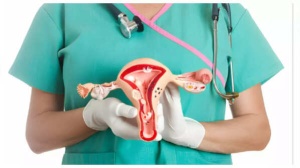Battling tooth decay can be a costly and time-consuming endeavor. However, emerging research suggests a simple, affordable solution might be within reach: vitamin D. A recent review of historical clinical trials reveals a significant link between vitamin D and a reduced incidence of tooth decay, potentially cutting the risk in half.

The study, published in Nutrition Reviews, analyzed 24 controlled clinical trials conducted between the 1920s and 1980s, involving approximately 3,000 children across various countries. The findings consistently indicated that vitamin D was associated with an approximate 50% reduction in the incidence of dental caries.
Dr. Philippe Hujoel of the University of Washington, who led the review, stated, "My main goal was to summarize the clinical trial database so that we could take a fresh look at this vitamin D question."

Vitamin D, often dubbed the "sunshine vitamin," is an essential, fat-soluble nutrient vital for numerous bodily functions. These include:
Our bodies naturally produce vitamin D when exposed to sunlight. The sun’s ultraviolet B (UVB) rays interact with cholesterol in skin cells, triggering vitamin D synthesis.
Alternatively, vitamin D can be obtained through dietary sources, such as:

While the importance of vitamin D for bone health is widely acknowledged, its role in preventing dental caries has been a subject of debate.
Dr. Michael Hollick, professor of medicine at the Boston University Medical Center, emphasizes the significance of vitamin D for dental health, stating, "Children who are vitamin D deficient have poor and delayed teeth eruption and are prone to dental caries."
Hujoel cautions, "One has to be careful with the interpretation of this systematic review. The trials had weaknesses which could have biased the result, and most of the trial participants lived in an era that differs profoundly from today's environment."
Newer articles
Older articles
 Earth's Spin Accelerating: Scientists Predict Potential 'Negative Leap Second' by 2029
Earth's Spin Accelerating: Scientists Predict Potential 'Negative Leap Second' by 2029
 5 Subtle Signs of Cervical Cancer Women Often Miss
5 Subtle Signs of Cervical Cancer Women Often Miss
 Hair Oil vs. Hair Serum: Choosing the Right Treatment for Your Hair Type
Hair Oil vs. Hair Serum: Choosing the Right Treatment for Your Hair Type
 Steven Smith Targets Test Return After Unique Baseball Cage Recovery in New York
Steven Smith Targets Test Return After Unique Baseball Cage Recovery in New York
 Bollywood's Enduring Fascination with Indian Mythology: From Ramayana to Modern Blockbusters
Bollywood's Enduring Fascination with Indian Mythology: From Ramayana to Modern Blockbusters
 Liver Disease: 5 Subtle Warning Signs You Shouldn't Ignore
Liver Disease: 5 Subtle Warning Signs You Shouldn't Ignore
 Heart Attack Warning: Key Signs That Can Appear Weeks in Advance
Heart Attack Warning: Key Signs That Can Appear Weeks in Advance
 New Zealand Announces Packed Home Cricket Schedule Featuring Australia, England, West Indies, and South Africa
New Zealand Announces Packed Home Cricket Schedule Featuring Australia, England, West Indies, and South Africa
 Wimbledon Upset: Bhambri & Galloway's Doubles Run Halted in Tiebreak Thriller
Wimbledon Upset: Bhambri & Galloway's Doubles Run Halted in Tiebreak Thriller
 Daren Sammy Fined, Receives Demerit Point for Third Umpire Criticism After Test Match
Daren Sammy Fined, Receives Demerit Point for Third Umpire Criticism After Test Match